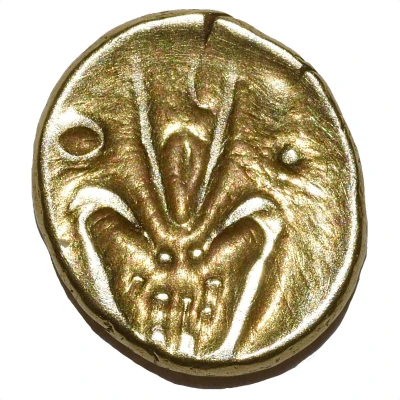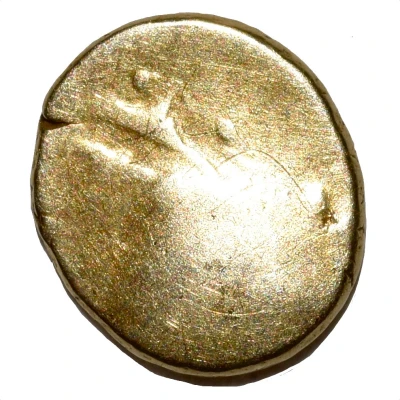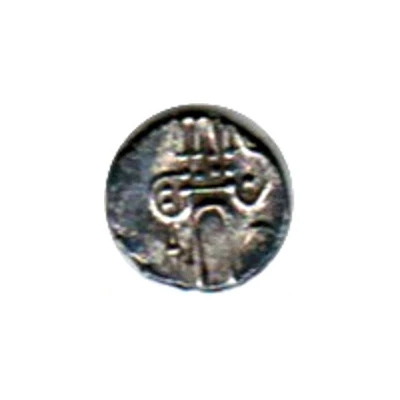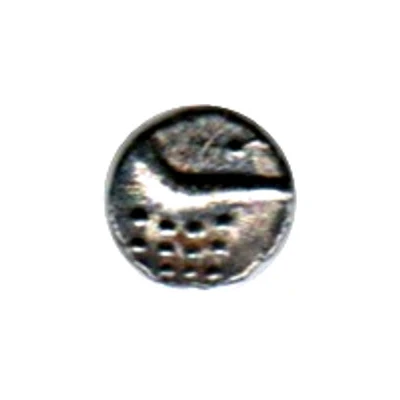


© Cuthwellis
1 Fanam East India Company imitation ND
| Gold | 0.37 g | 7.5 mm |
| Issuer | Dutch India |
|---|---|
| Type | Standard circulation coin |
| Years | 1639-1785 |
| Value | 1 Fanam (⅛) |
| Currency | Rupee (1615-1785) |
| Composition | Gold |
| Weight | 0.37 g |
| Diameter | 7.5 mm |
| Thickness | 1 mm |
| Shape | Round |
| Demonetized | Yes |
| Updated | 2024-10-05 |
| Numista | N#200383 |
|---|---|
| Rarity index | 83% |
Reverse
Blank. Variations may show faint inscriptions or crude circular bumps.
Edge
Plain
Comment
 Reference: Herrli #3. It is not known who issued this type of fanam, but according to Dr. Alexander Fishman, these coins could be either Dutch issues struck with worn dies or imitation issues minted by local chiefs of the Coromandel Coast, patterned after the Thanjavur-style fanam.
Reference: Herrli #3. It is not known who issued this type of fanam, but according to Dr. Alexander Fishman, these coins could be either Dutch issues struck with worn dies or imitation issues minted by local chiefs of the Coromandel Coast, patterned after the Thanjavur-style fanam.
Interesting fact
One interesting fact about the 1 Fanam coin from Dutch India is that it was used as a form of currency in the Dutch East India Company's trading posts in India, Sri Lanka, and other parts of Asia during the 17th and 18th centuries. Despite being imprinted with the image of a lion, the coin was actually made of gold, which was a valuable and sought-after metal at the time. This coin is a rare and valuable collector's item today, and its historical significance is a testament to the rich cultural and economic heritage of the Dutch East India Company's activities in Asia.

